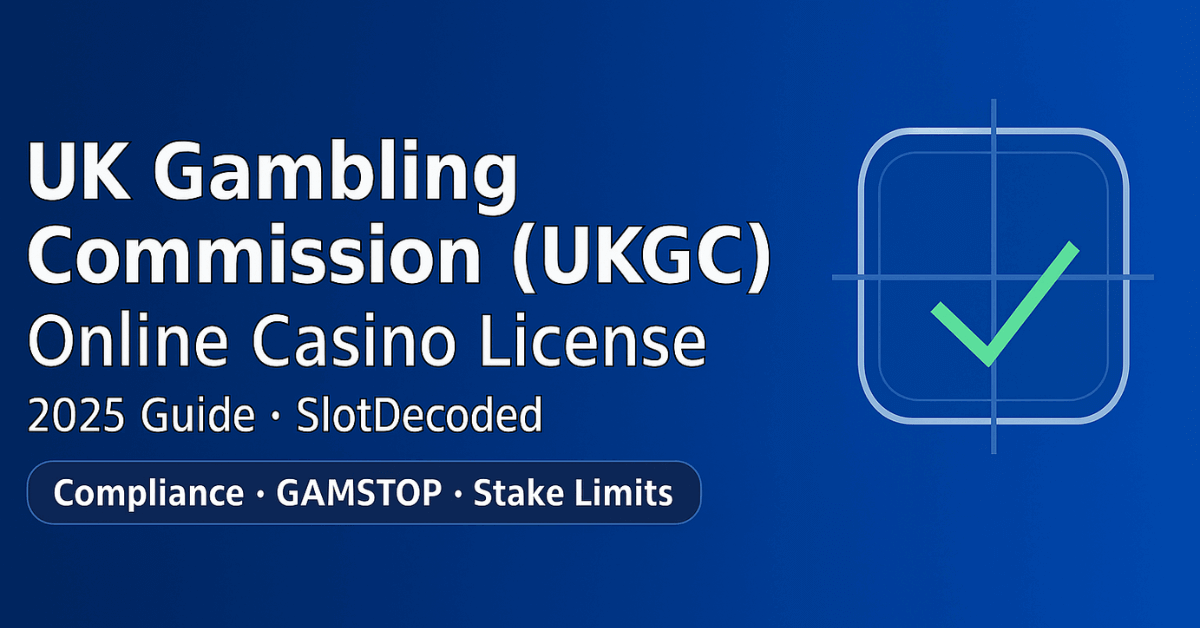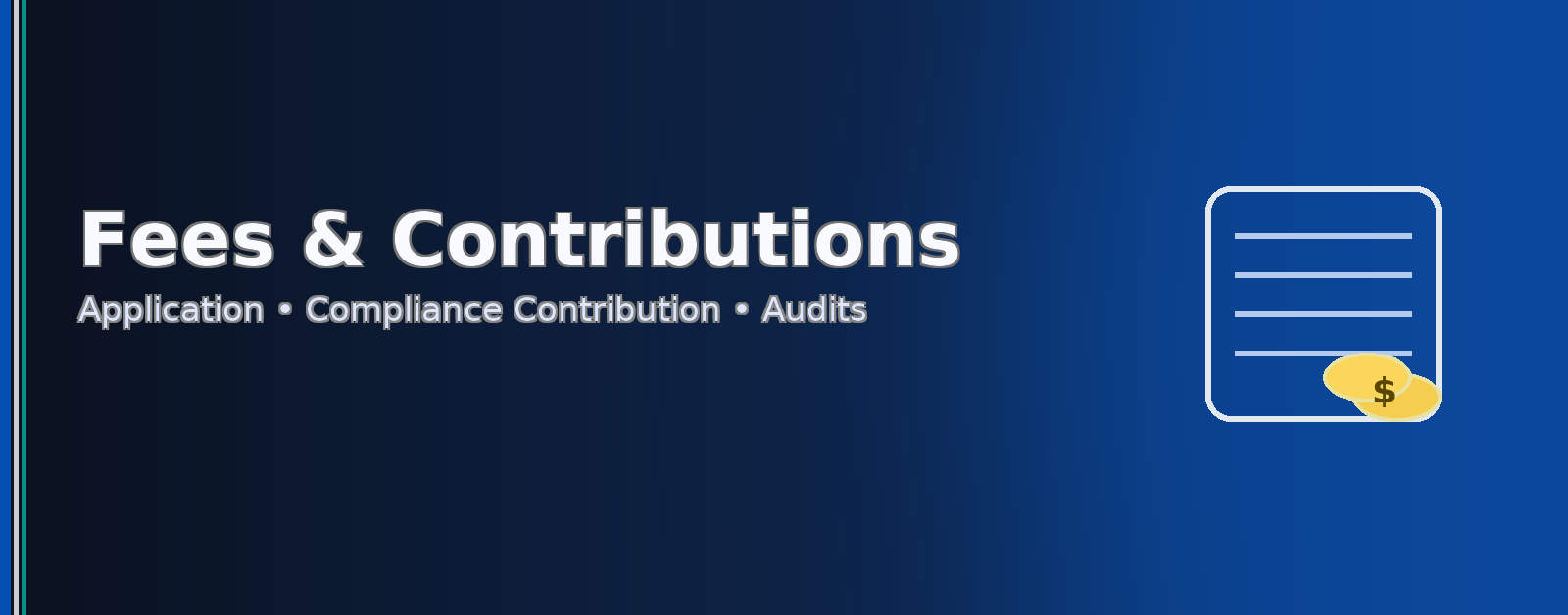
TL;DR (UKGC Online Casino License Executive Summary)
- The UK Gambling Commission (UKGC) regulates remote gambling in Great Britain and is widely viewed as a Tier‑1 authority with the strictest player‑protection standards in the industry.
- 2025 brought major updates: online slots stake limits (£5 for 25+ from 9 Apr 2025; £2 for ages 18–24 from 21 May 2025), reinforcement of marketing consent rules, and progress on financial risk checks pilots.
- UKGC requires Operating Licences (business), Personal Management Licences (PMLs for key staff), and compliance with the LCCP (Licence Conditions and Codes of Practice) and Remote Technical Standards (RTS).
- Operators must participate in GAMSTOP (multi‑operator self‑exclusion) and cannot accept credit cards for gambling.
- Expect rigorous oversight, frequent audits, and potential multi‑million‑pound sanctions for breaches. Costs are high (fees + compliance + 21% Remote Gaming Duty).
What Is the UKGC?
The UK Gambling Commission is the national regulator for gambling in Great Britain (England, Scotland, Wales). It enforces the Gambling Act 2005 and subsequent regulations covering integrity, fairness, crime prevention, and consumer protection.
For players, a UKGC online casino license signals strict safeguards and accessible redress. For operators and providers, it’s the legal route to serving UK players—and a global trust badge—albeit with the industry’s most demanding compliance obligations.
Licence & Approval Types
Operating Licences (Business)
Operators need the relevant remote operating licence(s) for their product verticals, for example:
- Remote Casino (RNG/live casino)
- Remote Betting (fixed‑odds, exchange)
- Remote Bingo
- Remote Software (for B2B suppliers)
Personal Licences (People)
- Personal Management Licence (PML): required for individuals holding key management responsibilities (e.g., overall strategy, finance, compliance, AML/MLRO, marketing, IT security, gambling operations).
- Personal Functional Licence (PFL): for certain roles in land‑based settings (less common in purely remote operations).
Each licence comes with LCCP obligations and reporting duties. Some businesses also need approval for key equipment locations and must maintain data accessibility for UKGC inspections.

Core Rulebooks You Must Know
- LCCP (Licence Conditions and Codes of Practice): overarching rules on suitability, AML, marketing, fair terms, complaints, and safer gambling.
- RTS (Remote Technical Standards): technical/game design rules (e.g., true RNG, display of RTP, prohibitions on misleading features).
- AML/CTF guidance: linked to the UK’s Money Laundering Regulations; requires risk‑based KYC, SoF/SoW checks, and transaction monitoring.
- Advertising Codes (CAP/BCAP): govern all marketing; must avoid targeting under‑18s or vulnerable audiences; require opt‑in consent by product/channel.
2024–2025: Key Player‑Protection Changes
- Online slots stake limits:
- £5 per spin for adults 25+ effective 9 April 2025.
- £2 per spin for adults 18–24 effective 21 May 2025.
- Design restrictions for online slots: no autoplay, no turbo/spin accelerators, no features that celebrate losses as wins, and minimum spin durations.
- Credit card ban: gambling with credit cards is prohibited; operators must block direct and indirect credit‑card funding.
- GAMSTOP: all remote operators must integrate the national self‑exclusion scheme.
- Financial risk checks: phased pilot of frictionless checks for unusually high spend/loss or risk indicators; full roll‑out will follow evidence from the pilot.
Application Process (Step‑by‑Step)
Timeline: thorough applicants typically plan for 6–12+ months including preparation, UKGC review, and readiness work.
- Scoping & Structure
- Define products (casino, betting, bingo) and supply chain (B2B vs B2C).
- Confirm legal entity, ownership/UBOs, governance, and key post‑holders (PMLs).
- Map tech stack (PAM, RGS, hosting, data access, analytics, SIEM).
- Policies & Controls
- Draft AML/CTF programme (risk assessment, KYC/EDD, SoF/SoW, sanctions screening, SARs).
- Safer Gambling policy (customer interaction framework, RG tools, vulnerability flags, GAMSTOP).
- IT/Security (access control, change/release, logging, DR/BCP); fair terms & complaints/ADR.
- Marketing & VIP governance (consent, incentives, affordability, comms suppression).
- PML Applications
- Submit detailed personal disclosures for each key person (CVs, references, financials, declarations).
- Ensure competency and capacity (role clarity, escalation matrix).
- Operating Licence Application
- Provide financial forecasts, source of funds, compliance org chart, outsourcing matrix, third‑party agreements, testing lab plans, and data access arrangements for UKGC.
- Readiness & Testing
- Integrate GAMSTOP and age/KYC providers; configure RG tools (limits, reality checks).
- Prepare RTS evidence (RNG, RTP display, game flow; removal of prohibited features).
- Establish ADR provider relationship and customer complaints workflow.
- Grant & Go‑Live
- Licences grant subject to conditions; maintain regulatory reporting, submit key event notifications, and prepare for compliance assessments post‑launch.

Fees, Taxes & Cost of Ownership
- Application & annual fees: tiered by GGY and activity (use the UKGC fees calculator).
- Remote Gaming Duty (RGD): 21% of profits from UK remote gaming (separate from UKGC fees).
- Compliance OPEX: AML/KYC vendors, GAMSTOP, ADR, testing labs, data retention, security tooling, skilled compliance staff, and periodic independent audits.
- Product compliance: game certification and ongoing updates to meet RTS and safer‑game design rules.
Budget realistically: UKGC compliance is continuous and resource‑intensive; the upside is market credibility and sustainable growth in a regulated environment.
Responsible Gambling (RG) Requirements
- GAMSTOP integration and effective internal self‑exclusion.
- Player‑set limits (deposit/loss/time), reality checks, and tools to restrict marketing.
- Proactive customer interaction: identify markers of harm (e.g., sudden losses, chasing, night‑time play) and intervene proportionately.
- Account verification: age and identity checks before gambling; rigorous EDD for high‑risk profiles.
- Clear T&Cs and fair promotions: no misleading offers; consent‑based marketing per product/channel.
AML/CTF & Financial Crime Controls
- Business‑wide risk assessment; risk‑based KYC/EDD; sanctions and PEP screening.
- Source of funds/wealth where warranted; transaction and behaviour monitoring with alert triage and case management.
- Recorded customer interactions; SAR/STR reporting to the UKFIU; periodic independent AML audit.
- Crypto exposure controls (if relevant): no direct gambling with credit cards; robust monitoring of payment methods and chargeback/fraud risk.
Product & Game Design Rules (Online Slots)
- Stake caps: £5 (25+) from 9 Apr 2025; £2 (18–24) from 21 May 2025.
- Pacing: minimum spin cycle; no turbo or slam‑stop features.
- No auto‑play; no split‑screen multi‑game; no “losses disguised as wins” audio/visuals.
- RTP transparency: accurate, accessible RTP display; changes require testing and approvals.
- Safer defaults: session reminders and friction to increase intensity are disallowed.
Ongoing Reporting & Regulator Engagement
- Key events: report material incidents (security breaches, payment issues, ownership changes).
- Regulatory returns: submit data to UKGC on schedule.
- ADR & complaints: track root causes; demonstrate learning and remediation.
- Compliance assessments: expect desk‑based reviews and onsite assessments; maintain an audit‑ready posture.
- Enforcement: UKGC publishes sanctions; failures in AML/RG/marketing can lead to large fines, licence suspension, or revocation.
Limitations & Trade‑offs
- High costs (fees, RGD, compliance staffing, technology).
- Strict product constraints (stake caps, design limits may lower headline turnover).
- Intense oversight (proactive monitoring, public enforcement).
- UK‑specific: separate licences required for other countries.

Player Protections Under UKGC
- GAMSTOP self‑exclusion across all licensed operators.
- Age/ID verification before gambling; affordability/risk checks in development.
- Fair terms, clear RTP, accurate advertising.
- ADR mediation and escalation routes; strong complaints handling standards.
- Marketing controls: opt‑in by product and channel; no unsolicited direct marketing.
Implementation Checklist (Operators)
Governance & People
Policies & Controls
Technology & Data
Operations
UKGC vs Other Licences (Quick Comparison)
| Feature / Regulator | UKGC (GB) | MGA (EU) | Curaçao (reforming) |
|---|---|---|---|
| Brand trust | Very High | High | Medium (improving) |
| Compliance burden | Very High | High | Low–Medium |
| Time to licence | 6–12+ months | ~4–6 months | 1–3 months |
| Market access | UK only (legally) | Grey/EU‑friendly | Grey/global |
| Product limits | Strict | Strong | Light (changing) |
| Taxes (directional) | RGD 21% (profit) | 1–5% contribution | Low duties historically |
Directional only; verify current rules, fees, and taxes before committing.
FAQs — UKGC Online Casino License
Is a UKGC online casino license recognized outside the UK?
No, but it is a powerful trust signal. You still need local licences where required.
Do I need a PML?
If you hold a key management function (strategy, finance, compliance/AML, marketing, IT security, gambling ops), yes.
Can I accept credit cards?
No. Direct and indirect credit‑card gambling is banned; controls must block credit funding.
What are the new slots stake limits?
£5 per spin for adults 25+ from 9 April 2025; £2 per spin for 18–24s from 21 May 2025.
Do I need to join GAMSTOP?
Yes. All remote operators must participate in GAMSTOP and apply internal self‑exclusion.
How often will the UKGC audit me?
Expect regular assessments and data requests; frequency depends on risk and history.
Conclusion: Is a UKGC Online Casino License Right for You?
The UKGC online casino license is the industry’s gold standard for consumer protection and compliance. It opens the door to Britain’s high-value market and strengthens partner and payment relationships—but it also brings the strictest oversight, higher operating costs, and product constraints (e.g., stake limits, game-design rules). For teams with mature governance and a long-term view, UKGC can be a durable competitive moat. For players, the UKGC seal continues to mean fair play, safer gambling tools, and real recourse.
For Operators & Providers — What to Do Next
- Decide scope & structure: confirm products (casino, betting, bingo) and whether you need Remote Software (B2B) as well as B2C.
- Staff the key roles: appoint qualified PML holders (strategy, finance, AML/MLRO, compliance, marketing, IT security, gambling ops).
- Build your control stack: align to LCCP and RTS (GAMSTOP, age/KYC, no credit cards, slots design rules, fair terms/ADR).
- Strengthen AML/CTF: risk assessment, KYC/EDD & SoF/SoW, sanctions/PEP, transaction monitoring, SAR workflow, independent audit.
- Plan the economics: licence fees + Remote Gaming Duty (21%) + vendors (KYC, GAMSTOP, ADR, labs) + permanent compliance headcount.
- Treat compliance as a product: ship safe defaults, maintain release/change control, and evidence everything for UKGC assessments.
For Players — What the UKGC Badge Guarantees
- Identity & age checks before play, safer-gambling tools (limits, reality checks, self-exclusion via GAMSTOP), and no credit-card gambling.
- Fair games & clear information: transparent RTP, accurate offers, no misleading “losses as wins.”
- Complaint routes that work: operator → accredited ADR → UKGC oversight of standards and enforcement.
Quick Operator Checklist
- Relevant Operating Licence(s) + PML team in place
- GAMSTOP live; age/KYC providers integrated
- Slots stake limits and RTS design rules enforced
- LCCP-compliant marketing: opt-in by product/channel; affiliate controls
- AML/CTF programme + SAR process; independent AML audit scheduled
- ADR agreement + robust complaints SOP
- Data, logs, and MI ready for regulatory returns and assessments
- Financial model includes RGD 21% and ongoing testing/audit costs
Bottom line: If you can operationalise the UKGC’s requirements day-in, day-out, the UKGC online casino license repays the effort with trust, resilience, and access to one of the world’s most valuable regulated markets. If not, start with an EU licence (e.g., MGA) or B2B scope first, then scale into the UK when your controls, culture, and capital are ready.
UKGC Online Casino License Sources
- UKGC — Online slots stake limit guidance
- UKGC — Licences & fees + fees calculator
- UKGC — Preventing credit card use
- UKGC — GAMSTOP participation announcement / Self‑exclusion guidance
- HMRC — Remote Gaming Duty (21%)
- UKGC — Financial risk checks pilot updates